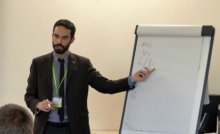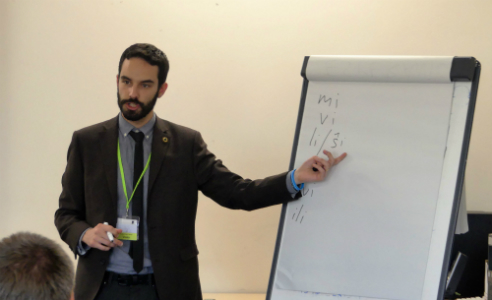
Anna Hull (Year 11)
On Tuesday, Mr Sanchez, a teacher of Spanish at Bedford School, visited BGS to run a lunchtime session about a very different language - Esperanto. It is spoken by an estimated 2 million people across the globe, but unlike other languages it did not evolve naturally through speech. It was instead artificially created in 1887 by Dr. Ludwig L. Zamenhof in order to be a universal and politically neutral language that could be easily learnt by almost anyone due to its phonetic spelling and logical grammar rules.
As Mr Sanchez explained, learning Esperanto can improve your command of other languages because it is effectively an amalgamation of them - it combines some vocabulary from Romance and Germanic languages with Slavic grammar techniques, and also introduces other linguistic concepts such as correlatives and demonstratives in a simple manner.
In a Canadian study conducted in 1965 it was found that boys in a prep school who learnt Esperanto for a year before learning French for three years outperformed boys who had done a four year course in French alone.
I really enjoyed the session as Mr Sanchez was clearly a very knowledgeable speaker and I think that I learnt a lot about the language in just a short time. I left feeling inspired to discover more about Esperanto, and I’ve even enrolled on some online courses to see if I can learn it in my spare time!





















